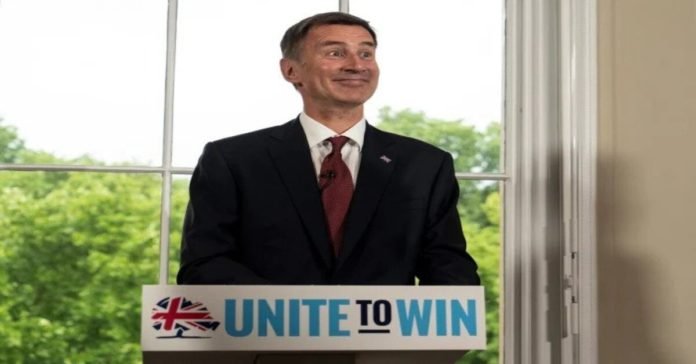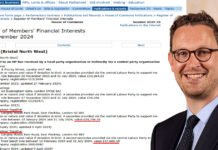Jeremy Hunt spent £3.56million on controversial purchase of seven luxury flats to rent out
The Tory leadership hopeful has apologised for failing to declare his part-ownership of a firm that bought the seaside properties.
Documents just made public on the Land Registry reveal Mare Pond Properties, set up with wife Lucia Guo, paid £437,000 for the cheapest flat last March while the most expensive was £685,000.
Mr Hunt faced a probe after failing to declare it in the Commons Register of Members’ Financial Interests on time, or with Companies House.
A spokeswoman said at the time:
“These were honest administrative mistakes.”
Jeremy Hunt was asked at the launch of his campaign for the Conservative leadership whether he had ever broken the criminal law. “I’m just really racking my brain at the moment,” the foreign secretary replied, “but the answer is no.”
Just five hours later, however, Hunt was forced to clarify that response when he acknowledged that he had in fact breached his own government’s anti–money laundering laws last year.
In a statement confirming that Hunt had broken Companies House rules, his spokesperson said that he “accepted these mistakes were his responsibility” and that they were a “genuine oversight”.
In 2018, the Daily Telegraph reported that Hunt had initially failed to declare to Companies House his 50% interest in a property firm used to buy seven luxury flats, a criminal offence punishable by a fine or up to two years in prison.
He was reported to have breached the Companies Act by failing to declare to Companies House, the UK’s registrar for companies, that he was a “Person with Significant Control” (PSC) within 28 days of registering the firm. The government’s guidance on the legislation states: “Failure to do so is a criminal offence.”
A company registration document was incorrect because it failed to declare Hunt’s interest, also a criminal offence under the Companies Act.
“Failure to provide accurate information on the PSC register and failure to comply with notices requiring someone to provide information are criminal offences, and may result in a fine and or a prison sentence of up to two years,” the guidance says.
Companies House usually enforces these laws with a retrospective compliance-based approach rather than pursuing those who fail to initially declare their interests through the courts.
The rules were brought in by David Cameron’s government in June 2016 — while Hunt was serving in the cabinet — to clamp down on money laundering, tax evasion, and corruption.
When the laws were introduced, the business minister, Baroness Neville-Rolfe, said: “Companies that disguise who owns or controls them are not playing by the rules and have something to hide.
“This register, the first of its kind in the world, will help tackle abuse of corporate entities. This is part of our commitment to creating an environment of trust and accountability for business.”
In addition, Hunt failed to declare his interest to the parliamentary authorities.
At the time, the former chair of the Committee on Standards in Public Life, Sir Alistair Graham, said: “It is a very poor show when ministers, who you expect to take on leadership in standards and public life, do not meet the rules they are required to meet. If there has been a failure of leadership, there should be a political price for it.”
Hunt’s spokesperson confirmed that Companies House rules were breached and that he accepted responsibility, but stressed that there was no personal gain.
“Jeremy’s accountant made an error in the Companies House filing which was a genuine oversight. With respect to ministerial and parliamentary declarations, the Cabinet Office were clear that there was no breach of the ministerial code,” they said.
“Jeremy declared the interest to them after the company was set up. They advised that as it was a shell company with no assets or value, it should only be registered when it became operational.
“As such, Jeremy presumed the same rules applied to parliamentary declarations. Although there was no personal gain involved, Jeremy accepted these mistakes were his responsibility and apologised to the parliamentary authorities, who stated that they consider the matter closed.”
This is a "Pay as You Feel" website Please help keep us Ad Free.
You can have access to all of our online work for free. However if you want to support what we do, you could make a small donation to help us keep writing. The choice is entirely yours.
























